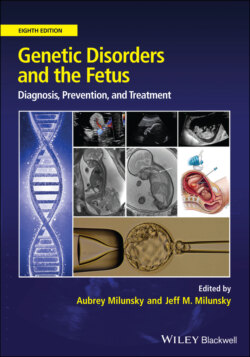Читать книгу Genetic Disorders and the Fetus - Группа авторов - Страница 141
Overview
ОглавлениеThe placenta is a fetal organ that is discarded after birth, but is essential to ensuring normal development in utero. It regulates fetal growth, protects the fetus from infection and other adverse exposures, as well as generally programming the fetus for good health after birth. Screening for placental disease is an important component to the assessment of the fetus in pregnancy. Reduced placental efficiency can lead to fetal growth restriction (FGR) and/or maternal preeclampsia (PE). This can be caused by genetic changes within the placenta or by environmental influences, such as maternal stress or drug exposure. In this chapter, causes of placental disease and the role of the placenta in diagnosis of fetal health will be reviewed with a focus on genetic associations.
